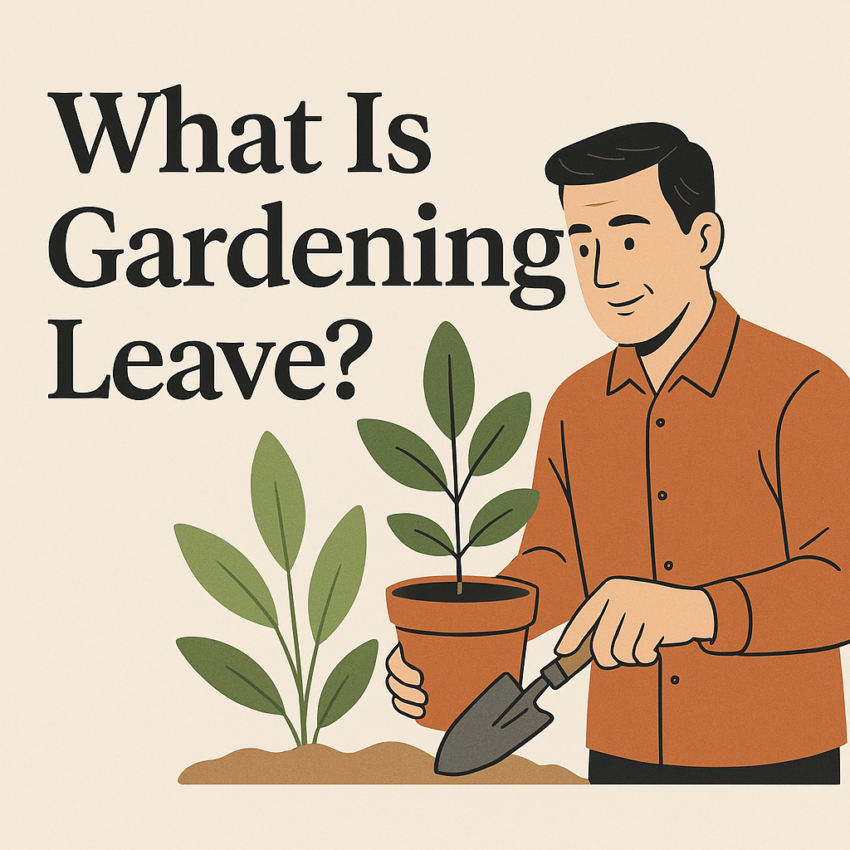Gardening leave is a term used when an employee, who has resigned or been terminated, is instructed to stay away from work during their notice period while still receiving their salary and benefits. The primary purpose is to prevent the departing employee from accessing sensitive company information, influencing clients, or joining a competitor too soon.
Why Do Companies Use Gardening Leave?
Gardening leave is a strategic tool used by employers for several reasons:
- Protecting Confidential Information – Employees in key positions have access to critical business data. Keeping them away from the office ensures they don’t take sensitive information to a competitor.
- Restricting Competitive Moves – It prevents employees from immediately joining a competitor or starting their own business with insider knowledge.
- Maintaining Workplace Stability – When high-profile employees leave, their absence can cause disruptions. Gardening leave allows businesses to manage the transition smoothly.
- Ensuring a Proper Handover – Some companies require employees to be available for consultation without actively working, allowing for a structured knowledge transfer.
How Long Does Gardening Leave Last?
The duration of gardening leave varies based on company policy, employment contracts, and industry standards. Typically, it lasts between one to six months, depending on the employee’s seniority and role. In some industries, particularly finance and technology, extended gardening leave is common due to the competitive nature of the business.
Does Gardening Leave Affect Salary and Benefits?
Yes, employees on gardening leave continue to receive their full salary and benefits as if they were still actively working. This includes:
- Regular salary payments
- Health insurance coverage
- Pension contributions
- Bonuses (if applicable and contractually agreed upon)
However, they are usually restricted from taking up new employment during this period unless explicitly stated otherwise in their contract.
Legal Aspects of Gardening Leave
Gardening leave is legally enforceable only if it is included in an employee’s contract. If an employer enforces it without a prior agreement, the employee may challenge it legally. Key legal considerations include:
- Breach of Contract – Employers must honor all terms outlined in the contract, including salary and benefits.
- Reasonable Duration – Excessively long gardening leave periods could be challenged as a restriction on employment rights.
- Restrictive Covenants – Some contracts include non-compete clauses that extend beyond the gardening leave period, further preventing employees from working with competitors.
Can Employees Work Elsewhere During Gardening Leave?
In most cases, employees are prohibited from working for a competitor or starting their own business while on gardening leave. However, depending on contract terms, they may be allowed to:
- Engage in non-competing freelance work
- Pursue education or training
- Work in an unrelated industry
Violating these restrictions can lead to loss of salary, legal action, or contract termination.
Gardening Leave vs. Non-Compete Clause: What’s the Difference?
While both are designed to prevent an employee from immediately joining a competitor, they function differently:
- Gardening Leave – The employee is still employed and receives a salary but does not actively work.
- Non-Compete Clause – The employee has left the company and is restricted from working with competitors for a set period, often without pay.
Both mechanisms are common in industries where proprietary knowledge and client relationships are crucial.
Benefits of Gardening Leave for Employees
While gardening leave is mainly beneficial for employers, employees can also take advantage of it:
- Paid Time Off – Employees can relax while still earning a salary.
- Career Planning – It provides time to strategize career moves without financial pressure.
- Skill Development – Employees can take courses, obtain certifications, or work on personal projects.
- Avoid Workplace Stress – Being away from the office eliminates the pressure of dealing with colleagues and clients after resignation.
When Does Gardening Leave Not Apply?
Gardening leave is not always applicable. Here are some situations where it may not be enforced:
- The employment contract does not include a gardening leave clause.
- The employee holds a junior or non-sensitive position.
- The company chooses to terminate employment immediately without a notice period.
- The industry does not commonly use gardening leave due to labor laws or employment norms.
Conclusion
Gardening leave is a strategic employment practice that benefits both employers and employees. It allows companies to protect sensitive information while giving employees a transition period before moving to a new role. If you’re placed on gardening leave, review your contract carefully to understand your rights and restrictions. Whether you’re planning your next career step or simply enjoying the break, make the most of this unique period.
